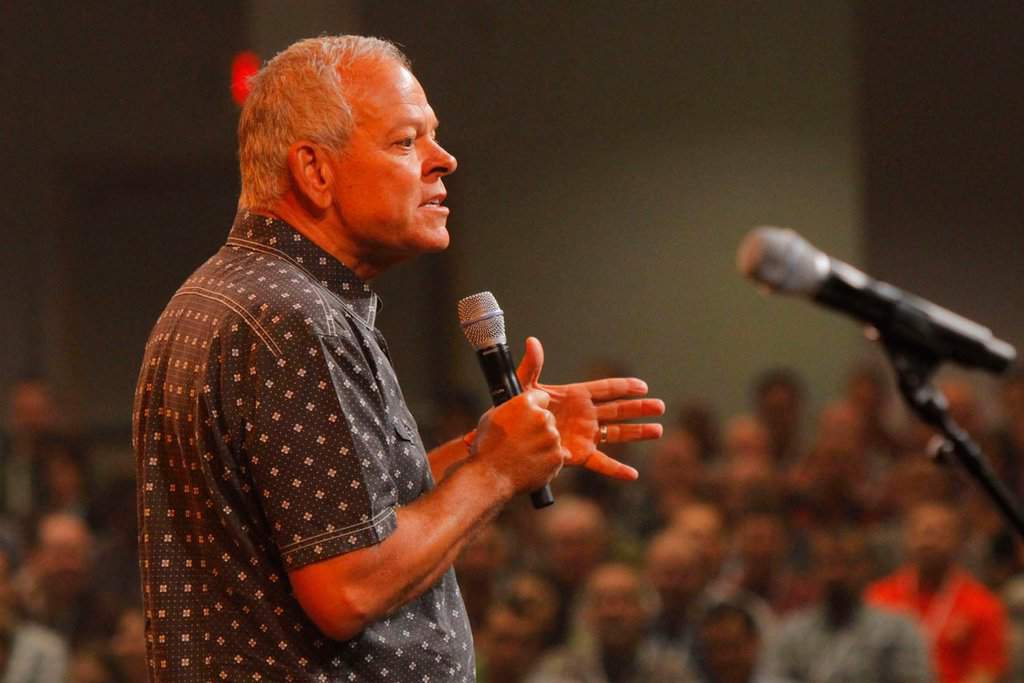KANSAS CITY (BP) – About 1,000 Southern Baptist churches close their doors each year. But a generation of pastors committed to church revitalization could reduce that number dramatically, Johnny Hunt and panelists at Midwestern Baptist Theological Seminary’s inaugural Legacy Church Planting Roundtable said.
“Midwestern Seminary was honored to host the inaugural Legacy Church Planting Roundtable,” Midwestern President Jason K. Allen said. “I am praying that church replanting, or revitalization, will capture the imagination of our generation like church planting has, proving both to be used of God to bring renewal and revival to the church.”
Each participant in the March 25 panel discussion shared stories from his ministry about legacy church planting, also known as church revitalization, and took questions from a group of more than 100 pastors in attendance. Panelists expressed concern about the trend of failing churches in the Southern Baptist Convention, but they had high expectations for the growing movement of legacy church planters –those who build new ministries in dead or dying churches. Allen moderated the discussion.
“We’ve got to stop the death rate [of churches] if we’re going to really, genuinely increase the birth rate,” Hunt, pastor of First Baptist Church in Woodstock, Ga., said.
Responding to Southern Baptists’ hesitation to plant churches where dead or dying churches already exist, Hunt said, “We need churches where we already have churches.”
John Mark Clifton, church replanter and pastor of Wornall Road Baptist Church in Kansas City, said he hopes a church revitalization movement will begin.
“We have churches in every neighborhood in North America, and if we just get them warmed up to the gospel, revitalized again and contextualized to their neighborhood, they don’t have to get to 1,000 [attendees],” Clifton said. “If they could have 200 or 250, be baptizing people, be launching out missionaries and ministering to their neighborhood – becoming an indispensable part of their neighborhood, part of the fabric of that neighborhood – then I think we can truly change the landscape of our country.”
Mark Hoover, pastor of NewSpring Church in Wichita, Kan., said his congregation was “internally focused” before going through a revitalization process.
“The people on the inside decided they really wanted to be about the people on the outside,” Hoover said. The congregation spent more than four years changing its philosophy of ministry, eventuating in a name change.
Panelists addressed the difficulty of encouraging students to consider legacy church planting, especially in light of the growing enthusiasm for planting brand new churches.
Revitalization is “messy work,” Hunt said. “It’s hard, and it’s difficult.”
Steve Dighton, pastor of Lenexa Baptist Church in Lenexa, Kan., told of a seminary student who “didn’t want to inherit another pastor’s mess.” He reminded the student that even with a church plant, people always bring a mess.
Every seminary student should “prayerfully consider undertaking a church revitalization,” Dighton said, “especially if you just understand that going in it may not be easy, but God’s glory is worth it.”
Pastors often seek “to inherit someone else’s work,” Hunt said. “Have you ever thought about [the fact that] God may be wanting you to do a great work? If you’re not careful, you’ll spend your life wanting to meet people that God uses. Why don’t you ask God to make you one of those people?”
D.A. Horton, executive director of ReachLife Ministries and national coordinator for urban student missions at the North American Mission Board, encouraged church planters and seminarians to focus on pastoring people rather than building a platform.
“Many guys look past the people because they want a platform,” Horton said. “God is going to have you run in a lane. Don’t compare yourself to your peers, and don’t compare yourself to the podcast pastor. Just ask God to plant you where He desires you and serve faithfully.”
Allen called the panel discussion “a good start,” but said “there’s much to be done.”
“I’m encouraged about the future and what this means for the local church,” Allen said. “Midwestern Seminary is strategically positioned to lead in this area, especially given John Mark Clifton and the North American Mission Board’s efforts in Kansas City.”
The full video of the panel discussion can be accessed at JasonKAllen.com. ν

